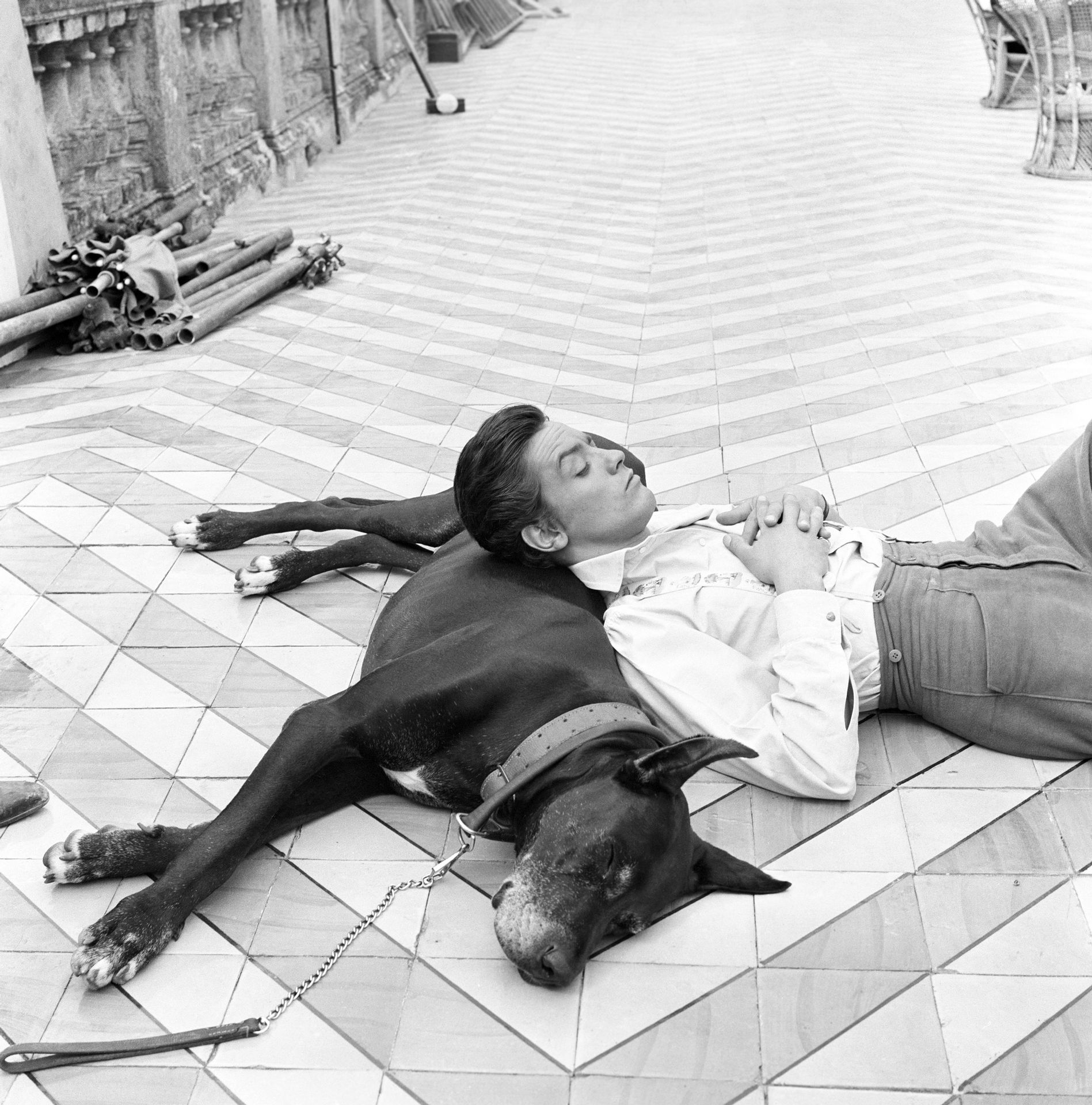【Editor’s Note】On August 18th local time, the three children of French star Alain Delon revealed to AFP that Alain Delon has passed away at the age of 88.
Alain Delon is a well-known foreign actor among Chinese audiences, with his films "Zorro" and "The Black Tulip" having once taken China by storm.
Beyond the handsome, deep, elegant, or stern images he left in classic films, Alain Delon represents a time-marked memory for Chinese audiences. He had a fondness for China and was aware of the affection the Chinese people held for him. His film "The Loner" profoundly influenced Hong Kong directors such as John Woo and Derek Yee, and deep down, he harbored an unfulfilled desire to come to China to make movies.
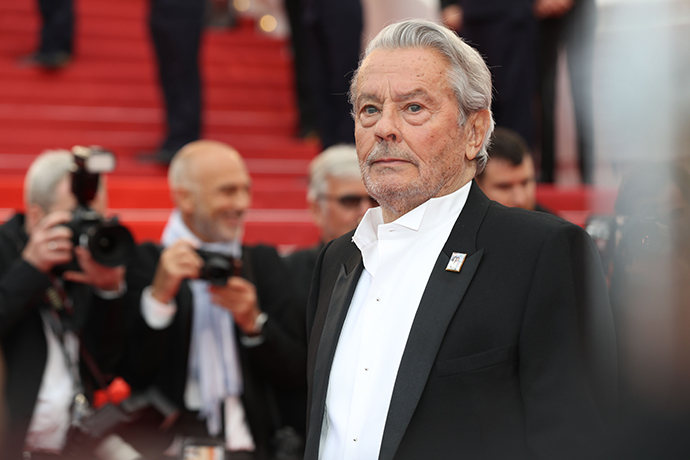
Alain Delon. Photo Credit: People's Vision
After "Zorro" became a hit in China, France realized he was a global icon
Alain Delon starred in over 80 films throughout his life, yet the one most beloved by Chinese audiences is undoubtedly "Zorro." In the film, he plays a dashing swordsman, cloaked and masked, who metes out justice. Dressed in a black cape, riding a chestnut steed, wielding a long whip, and flashing a charming smile from under his black hat, he exudes a romantic charisma.
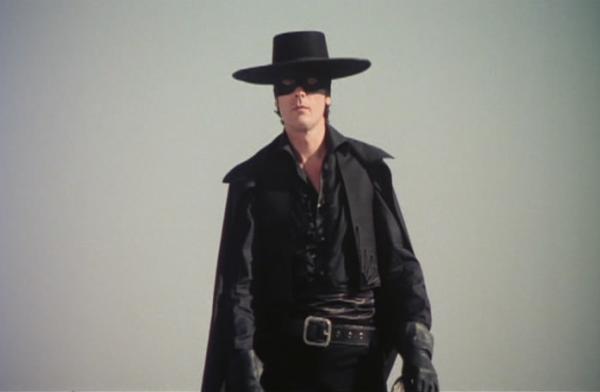
Scene from "Zorro"
The film premiered in 1978 and was one of the first Western films introduced to mainland China. Statistics indicate that more than 70 million Chinese viewers have seen it, a figure that was undeniably immense at the time. The character of Zorro, embodying independence and courage, aligned with the aesthetic ideals of the time, diverging from the more familiar heroic revolutionary figures to reveal a cunning charm beneath his bravery, and easily captured the admiration of millions of fans. His voice actor Tong Zhirong also stepped into the limelight, becoming one of the most sought-after voice actors in the public eye.
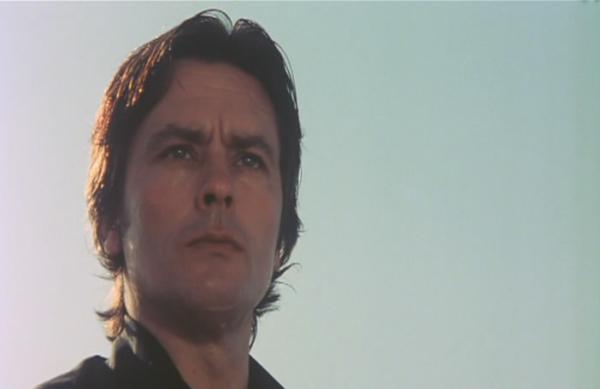
Scene from "Zorro"
The success of "Zorro" in China surprised Alain Delon himself. Upon releasing in France in 1975, it did not garner much acclaim. French audiences seemed to favor Delon’s more stoic roles, and this departure from his usual style didn't create much of a stir.
Tong Zhirong's performance undeniably bridged the gap between this Western hero and Chinese audiences. His voice even added a charm to Zorro that the original did not possess.
Alain Delon's deep and resonant voice contrasts with Tong's airy and graceful tones, which have a magnetism in the mid-high range complemented by a unique romantic aura. Director Yang Chengchun believed that a perfect fusion of both voices was essential and steadfastly chose Tong Zhirong.
In "Zorro," Tong Zhirong voiced three characters played by Delon: Diego, the fake governor, and Zorro himself. To distinguish between the voices of Zorro and the fake governor, Tong Zhirong devised a clever method: in the morning, he wore platform shoes to match Zorro, giving him a deep, steady voice; in the afternoon, he switched to slippers for the fake governor, making the voice lighter and less confident.
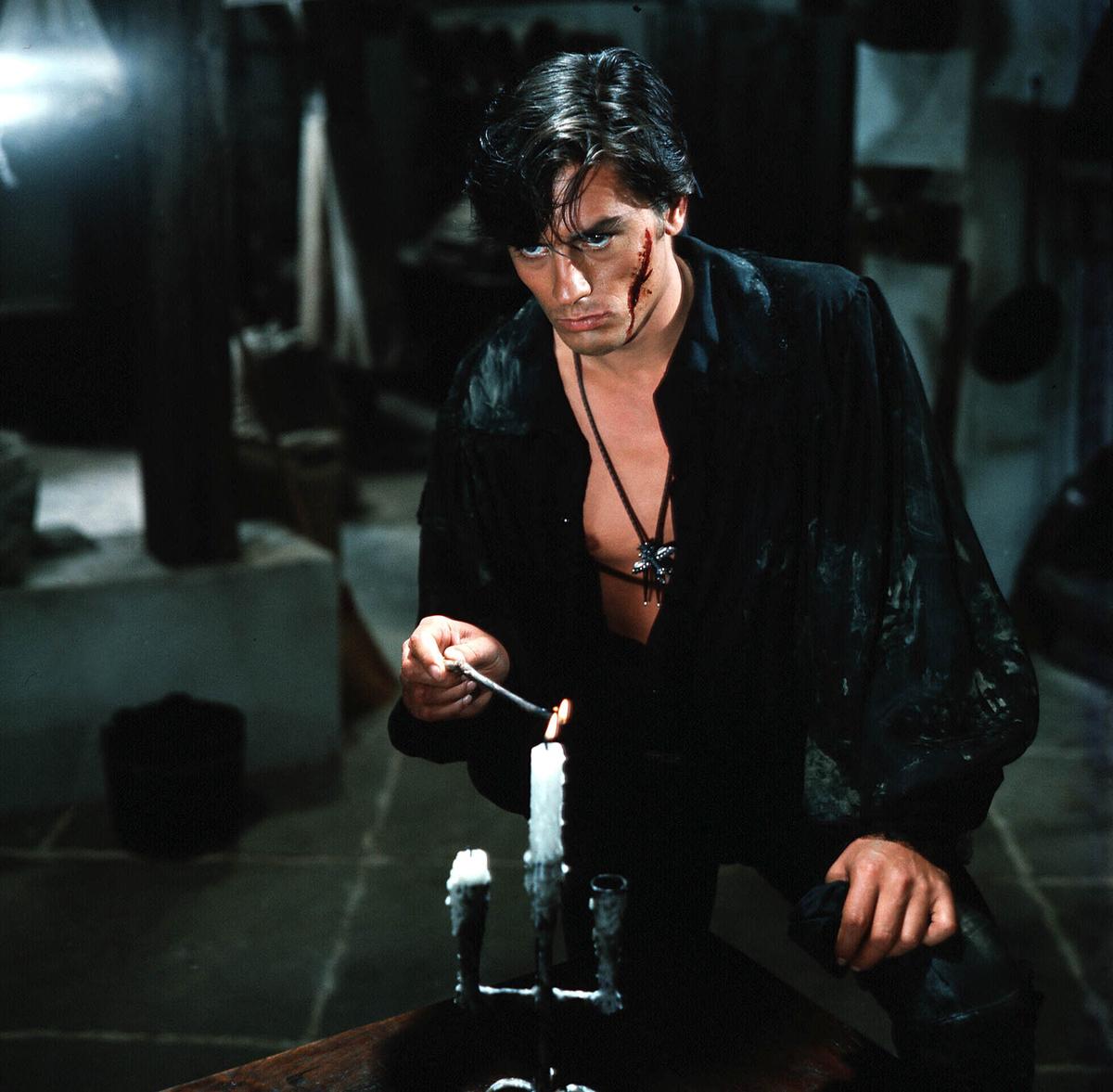
Scene from "The Black Tulip"
After the release of "Zorro," Tong Zhirong, as the voice of Zorro, received sacks of fan letters daily. This role remains one of his most notable artistic achievements. Subsequently, he provided voice work for Alain Delon’s characters in the trilogy of films "The Black Tulip," "The Lonely Detective," and "The Officer's Promise," creating a cherished collaboration between two artists from East and West.
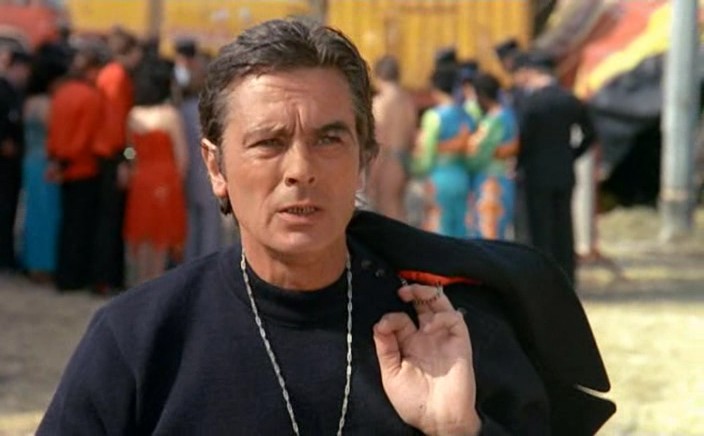
Scene from "The Officer's Promise"
The Chinese audience's affection for Alain Delon also provided him with a welcoming space in the East. When "The Officer's Promise" premiered in Beijing, Delon traveled to China to promote the film. It was quite rare for foreign stars to come to China for promotions in the 1980s.
During his visit to China in 1987, he expressed his gratitude to Tong Zhirong, saying, "Thank you to this friend who made me one with the Chinese." When meeting the real Zorro, Tong Zhirong took Delon's hand, expressing, "I believe I still have much to improve upon; I hope Mr. Alain Delon can give me some advice." Delon replied that he had watched the movie and had no critiques, "If it had been bad, I would have said so."
Later, in an appearance on the program "Ke Fan's Listening," Alain Delon reflected on his feelings for Chinese audiences, saying that it was actually through them that the French came to recognize him as a global icon. Although there was an element of humility in his statement, the bond between Alain Delon and China is indeed profound.
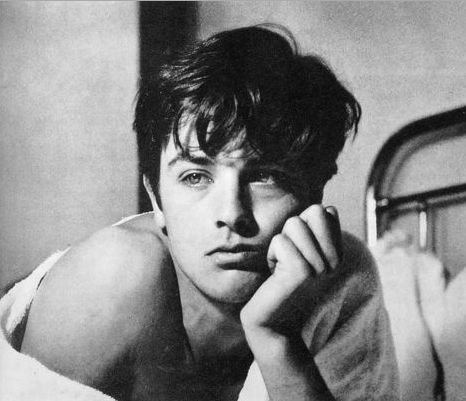
Young Alain Delon
Alain Delon’s Strong Popularity in China
It would be quite fitting to call Alain Delon a "friend of the Chinese people." There are many anecdotes about him and China that are worth reminiscing.
In September 1983, Maxim’s restaurant at 2 Chongwenmen West Street, Beijing, was grandly opened—this was the first Western restaurant operated through Sino-Foreign cooperation after China's reform and opening up. In the 1980s, it became a gathering place for cultural luminaries and left a brilliant mark in China's literary and artistic history of that era. Lu Siqing provided accompaniment for models walking the runway, Cui Jian sung "Nothing to My Name" here for the first time, Zhang Yimou frequently brought Gong Li for drinks, and even Leslie Cheung would come here for karaoke whenever he visited Beijing. Alain Delon held his 50th birthday party in this restaurant, adding another highlight to its history.
In an old photograph, Alain Delon is seen sitting at a small table adorned with red velvet with then-manager Song Huai Gui, the flags of China and France placed behind them, surrounded by dark-clad bodyguards and an audience of reporters taking photos. Records show that Delon jokingly told Song, "Today I’m 50; let’s only let in 50 guests, then close the doors." Song Huai Gui responded, "We have a saying in China: the number of guests at your birthday determines how long you live." Consequently, the restaurant was packed with guests that day.
Alain Delon was fond of Chinese culture and cherished Beijing's historical sites. It is said that during his time in Beijing, he rode a bicycle to visit various attractions, endearing him to many as a friendly foreigner. Numerous old photographs from his travels in China still document his connection with the country.
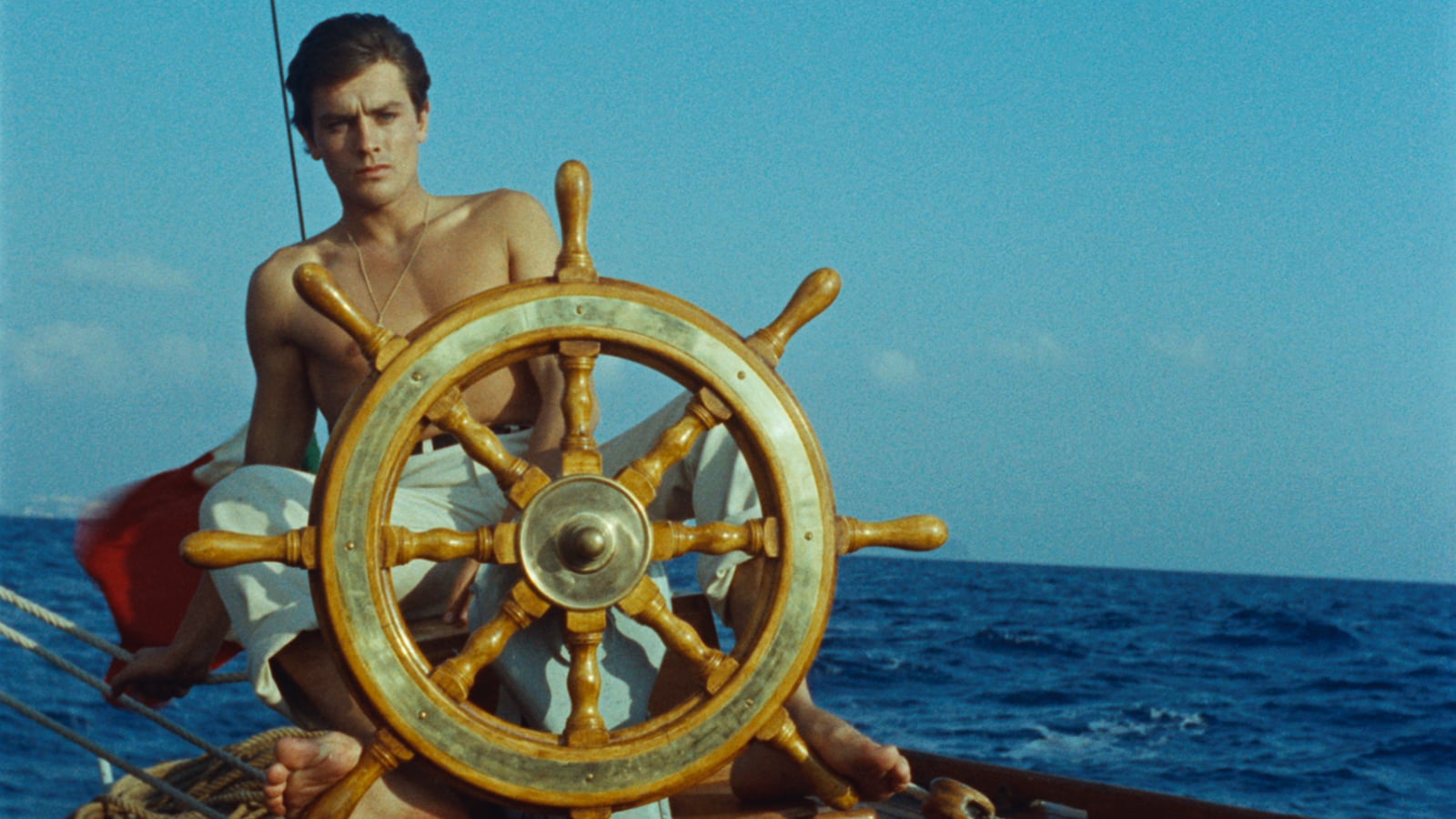
Scene from "The Unburied Dead"
When Alain Delon visited China in 1987, the passionate response he received from fans left a lasting impression. A welcome party for him at the Capital Gymnasium had tickets originally priced at 4 yuan sold by scalpers at 50 yuan, yet they remained hard to come by.
At that time, there was even a disco-style Chinese song celebrating him, with lyrics that, viewed today, showcase the fervor for this idol. The song was simply titled "Alain Delon," and its lyrics went:
Every time I look up longingly at the shooting stars in the night sky,
I can't help but yearn for that brilliant star.
Though he is so far away from me,
his radiance dazzles my eyes and pierces my heart.
Alain Delon is a ball of fire, Alain Delon is a whirlwind,
Alain Delon, you have stirred the hearts of so many...
However, this frenzy also prompted reflection on the phenomenon of Chinese fans idolizing stars. Cultural commentators noted, "Our audience loves movies too much and desperately needs true film stars they can wholeheartedly adore. Delon’s visit made us see their longing."
The bond between a movie star and the audience should ideally be fulfilled through film. Alain Delon has always wished to make a movie in China, yet that desire has remained unfulfilled.
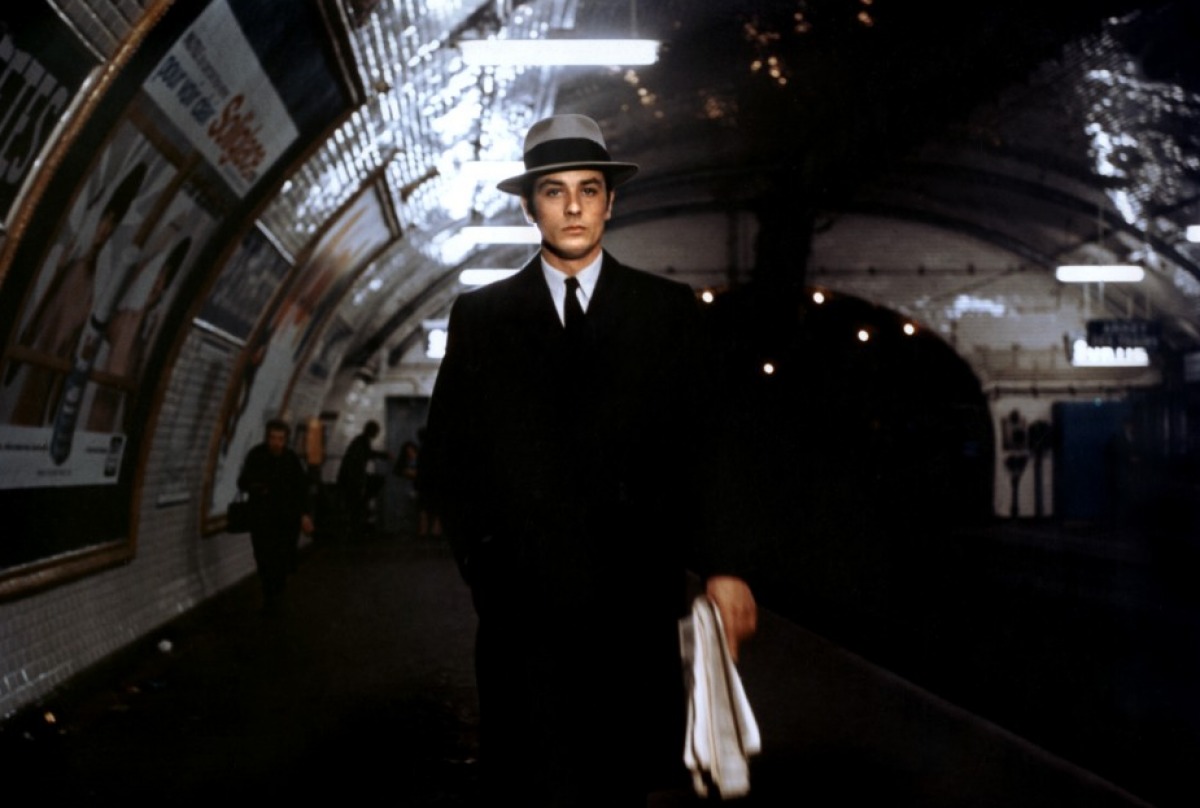
Alain Delon's film "The Loner" had a profound impact on directors such as John Woo and Derek Yee
In 2007, news surfaced that Alain Delon would travel to Hong Kong to collaborate on a new film with director Derek Yee by the end of the year. A year prior, Delon had expressed in a media interview, “Derek Yee has invited me to star in his next film; such an offer is hard to refuse.” Following this, his agency disclosed that Delon had met with Yee several times in Paris to discuss specifics. This would have been a marvelous collaboration; movie fans familiar with Hong Kong cinema know that both Yee and John Woo were deeply influenced by Delon’s earlier works. However, this collaboration ultimately fell through.
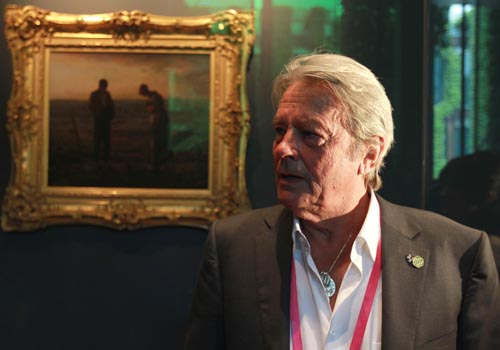
In 2010, Alain Delon became the image ambassador for the French pavilion at the Shanghai Expo. Photo Credit: The Paper
In 2010, Alain Delon was appointed as the image ambassador for the French pavilion at the Shanghai World Expo. During the event, he visited Shanghai multiple times to greet guests coming to the French pavilion, promoting French culture and the eco-friendly lifestyle advocated by the pavilion. At the time, he expressed excitement over Shanghai's development, recalling his first visit when "the Bund across the river was bare, and now Shanghai makes New York and Paris pale in comparison."
During an exclusive interview in Shanghai with Cao Kefan, he discussed the brand he established, Alain Delon, stating, "I enjoy doing business with Chinese people; they like me more, so I also lean towards the Asian market. The people here are the most fond of me and admire me."
Regarding the immense changes in China’s development, Alain expressed, "I feel I was born too early; if heaven allows me to live longer, I hope to witness the day when China becomes even more powerful."
In that interview, he also reiterated his desire to shoot a film in China: "I wish to make a movie in China before I leave this world; remember my wish!"
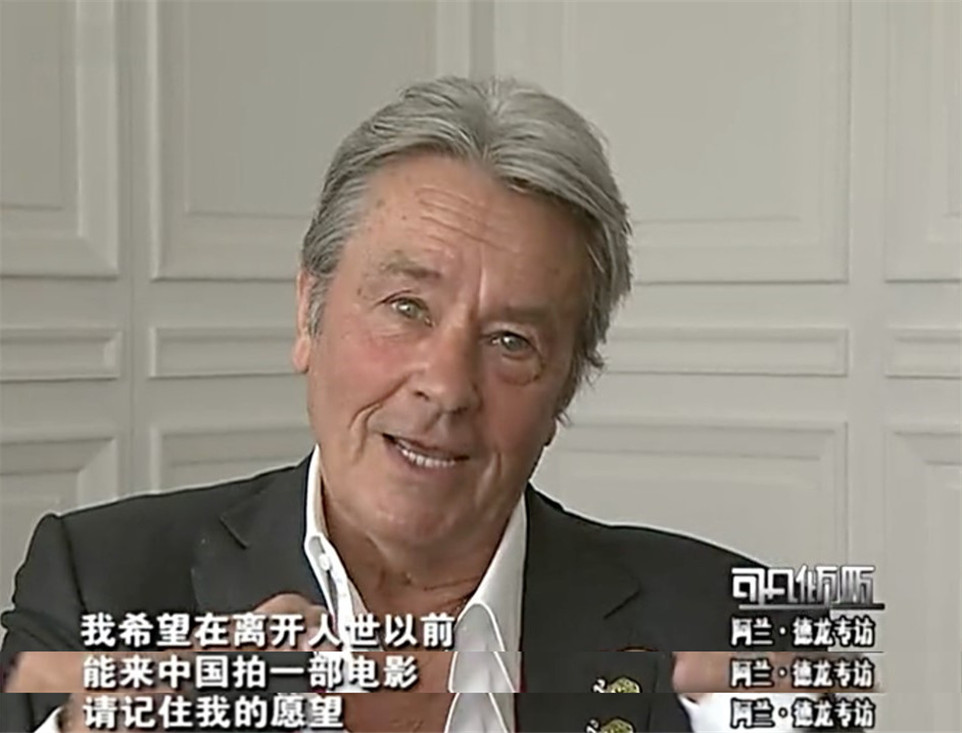
Alain Delon during the interview with "Ke Fan's Listening"
